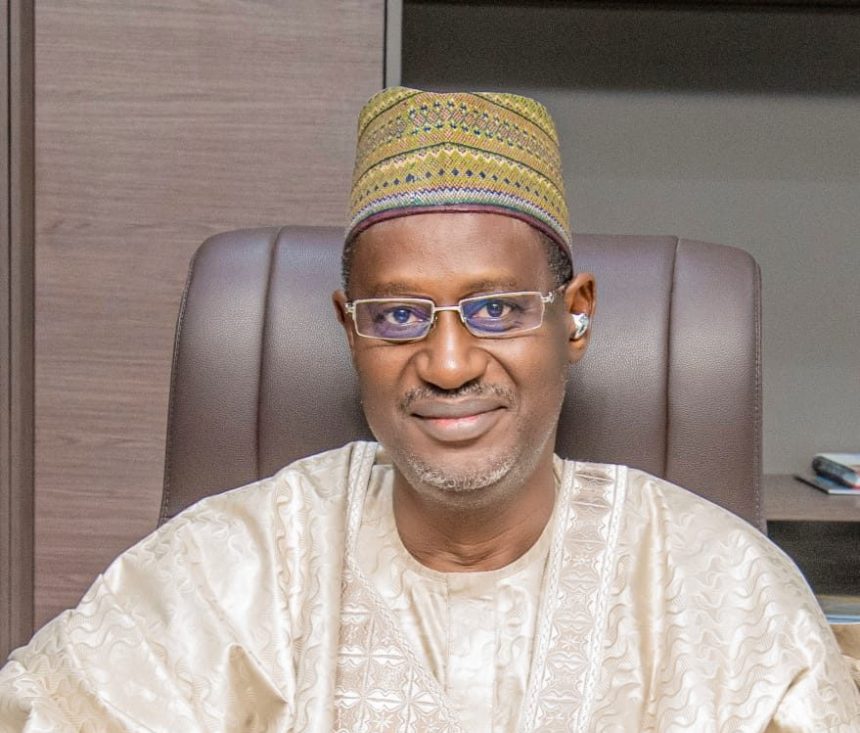The Minister of Housing and Urban Development, Ahmed Dangiwa, has revealed that 43 million households in Nigeria are currently living in substandard housing conditions.
The Minister of Housing and Urban Development, Ahmed Dangiwa, has revealed that 43 million households in Nigeria are currently living in substandard housing conditions.
Dangiwa made this disclosure at the Ministry’s 2025 Sector Retreat, held at Radisson Blu Hotel, Ikeja, Lagos, with key stakeholders in attendance.
The retreat, themed “Actualising the Renewed Hope Agenda for Housing and Urban Development”, focused on scaling housing impact nationwide.He emphasized that despite numerous attempts by past administrations over the last 50 years, housing sector results remain disappointing.Decades of Neglect and Slum ExpansionA Bold Plan for Housing DevelopmentKey Reforms and Strategic InitiativesProgress on Construction and Housing TargetsTackling Longstanding Land Administration Challenges
Dangiwa made this disclosure at the Ministry’s 2025 Sector Retreat, held at Radisson Blu Hotel, Ikeja, Lagos, with key stakeholders in attendance.
The retreat, themed “Actualising the Renewed Hope Agenda for Housing and Urban Development”, focused on scaling housing impact nationwide.
He emphasized that despite numerous attempts by past administrations over the last 50 years, housing sector results remain disappointing.
Decades of Neglect and Slum Expansion
“Our sector has suffered political neglect since independence, despite five-yearly development plans aimed at economic growth,” Dangiwa noted.
He added that most Nigerian cities remain surrounded by slums, further highlighting the urgent need for housing development reforms.
According to him, the majority of Nigeria’s 43 million households reside in inadequate housing, underscoring the sector’s challenges.
However, Dangiwa expressed optimism, stating that the Renewed Hope Agenda would change the sector’s narrative for future generations.

A Bold Plan for Housing Development
The minister outlined a comprehensive action plan provided by President Bola Tinubu to tackle Nigeria’s housing challenges effectively.
Key priorities include increasing the supply of affordable housing and ensuring decent shelter for low-income and displaced Nigerians.
“Leaders matter in nation-building. Mr. President’s CAN-DO SPIRIT will guide our approach in rewriting Nigeria’s housing history,” Dangiwa said.
He stressed that the Renewed Hope Era would serve as a generational reference point for housing and urban development.
Key Reforms and Strategic Initiatives
Dangiwa highlighted plans to implement land reforms aimed at unlocking the real estate sector’s economic growth potential.
These reforms include improving land administration systems to enable secure, affordable, and easily transferable land ownership rights.
He also announced the establishment of a National Social Housing Fund for no-income, low-income, and internally displaced Nigerians.
Additionally, six manufacturing hubs—one in each geopolitical zone—will be created to support housing construction and material production.
Progress on Construction and Housing Targets
The minister criticized previous administrations, noting that only 3,388 housing units were completed from the 7,522 planned since 2016.
He contrasted this with current efforts, highlighting 14 active construction sites nationwide, with 10,112 housing units under development.
“With most projects at roofing levels, we are confident all units will be completed within a maximum three-year period,” Dangiwa assured.
Despite this progress, he acknowledged that building at least 500,000 housing units annually remains essential to meet national demand.
Tackling Longstanding Land Administration Challenges
Addressing land administration, Dangiwa revealed that a newly established land reform task team had developed a comprehensive blueprint.
This blueprint outlines strategies for effective land governance, addressing issues that have persisted for over 50 years post-independence.
“Our goal is to make land ownership secure, accessible, and affordable, facilitating real estate growth and national economic development,” he said.
The minister concluded that deliberations on these strategies would shape future actions for sustainable housing and urban renewal.



